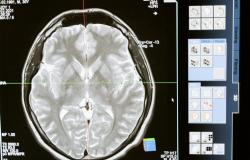The bacterium Bordetella pertussis, responsible for whooping cough.
Europe, Australia and New Zealand are affected by an increase in cases of whooping cough, and a case was detected last week in fenua, in an adolescent whose vaccine boosters had not been given. Whooping cough is highly contagious and very young children as well as the elderly are very exposed to the risk of contamination.
According to the Arass health surveillance bulletin, a case of whooping cough was detected last week, without specifying where. The patient is a 15-year-old person whose booster vaccinations at 6 and 11 years old have not been given. People close to him were identified and prophylactic measures recommended (antibiotic and/or booster vaccine).
Whooping cough is a respiratory infection of bacterial origin that is very contagious, especially during the first week of coughing. It is estimated that a sick person can infect on average 15 to 17 people. The incubation period can vary from one to three weeks, without symptoms. Then comes a runny nose, lasting one to two weeks, then a moderate cough which quickly progresses to coughing fits, more frequent at night, which can cause the bursting of small blood vessels around the eyes, and vomiting. This stage can continue for 4 to 6 weeks, then the disease slowly regresses.
Given its rapid spread, doctors are required to report the cases they encounter among their patients.
In mainland France, 5,800 cases of whooping cough have been recorded since the start of the year. Two infants died this week in Montpellier. Nearly 60,000 cases of whooping cough have been reported in countries of the European Union and the European Economic Area in 2023 and until April 2024. This represents ten times more cases than in 2022 and 2021. The very Young children are at high risk, as are the elderly. The vaccine has a shelf life of 5 years. For adults, it is recommended to carry out boosters every 20 years, and even every 10 years from the age of 65.
In Polynesia, less than ten cases were detected in 2015.
Explanations from Dr Jimmy Mohamed, on the set of our partner RTL







